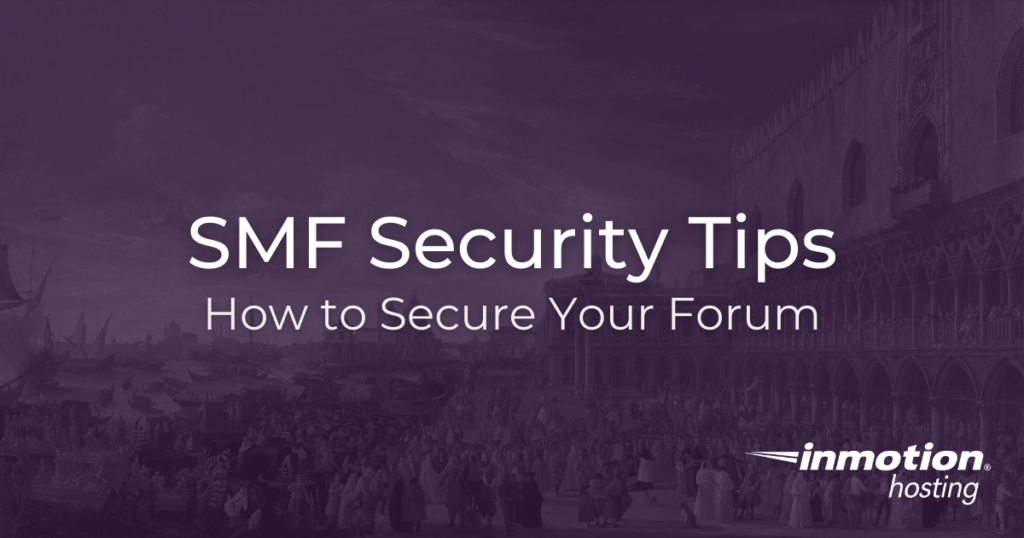Table of Contents

Managing an SMF forum is not all fun and games, even though moderating your forum can be a lot of fun. You must keep in the mind that your forum is coded in PHP and relies of an SQL database to serve content. PHP is very secure, but there is always a possible for code injection, malicious file includes, or other forms of malicious code and surface attacks. Basically, your forum is not impervious to harm that others might do to it. Nevertheless, there are some easy SMF security parameters you can put in place to put your installation is a good position.
Some SMF Security Tips
In this article, you will receive some basic SMF security tips that come in two forms: 1) general knowledge, 2) actionable items. The general knowledge informs you about the basic technology behind your installation, so if there’s a problem you’ll at least know where to look first. The actionable items are necessary steps you can take to harden your site.
Database Vulnerability
Your database itself has its own username and password. Remember that you must never share the database password with anyone who does not have privileged access to the site. If you installed SMF with Softaculous, the chances are the database password is mysterious even to you, which is fine. This makes it less likely that you would share the password without realizing it.
Backup Your Files and Database Frequently
To backup your files, you can use a simple protocol like FTP. This is the easiest way to save a backup of the core SMF files that run the app. And you can easily export your database with phpMyAdmin. With recent backups available you can always quickly and easily restore your site in the event of a hack.
Turn Off File Uploads For Guests
Remember that by default your SMF forum is open to the public, meaning that guests can peruse the forum topics and get information. However, this is where guest participation must end. You are best advised to deny guests the ability to upload file attachments of files of various media types. This will help you avoid remote file inclusion and other exploits.
Learn more about the differences between cloud hosting vs VPS hosting.